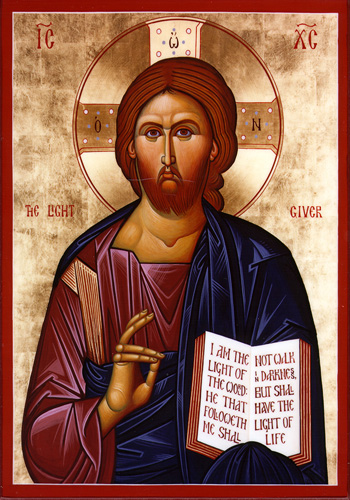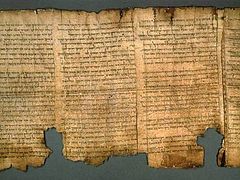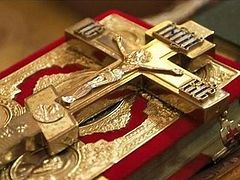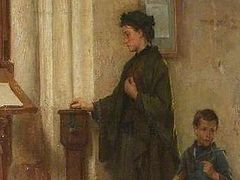Together with the scribes and the elders the chief priests question Jesus’ authority to work miracles. Tell us, by what authority are You doing these things? Or who is he who gave You this authority? (Luke 20:2, NKJV). In other words, by what authority does Jesus heal the sick, give sight to the blind and raise the dead? You would think that the question answers itself. Or at least that the religious authorities would have given some weight to the words of the man to whom Jesus restored sight:
Why, this is a marvelous thing, that you do not know where He is from; yet He has opened my eyes! Now we know that God does not hear sinners; but if anyone is a worshiper of God and does His will, He hears him. Since the world began it has been unheard of that anyone opened the eyes of one who was born blind. If this Man were not from God, He could do nothing (John 9:30-33, NKJV).
St Augustine says that they asked Jesus what they did “to discredit Him.” He goes on to say that instead of believing in Him “they took refuge in the darkness of their own hearts” (Sermon 293.4, in vol III of ACCS NT: Luke, p. 303).
In the Gospel Jesus’ authority—His rights if you will—is for something. It has a purpose. Jesus has authority, power, to proclaim the Gospel in both words and deeds. The authority that Jesus exercise liberates us from the law of sin and death (Romans 8:2, NKJV). We are, St Cyril of Alexandria says, “set free by Christ” from sin and death and are now able to “lead lives of holiness” (“Explanation of the Letter to the Romans,” in vol VI of ACCS NT: Romans, p. 202).
St Paul in his letter to Timothy is concerned that now having experienced freedom in Christ, the young bishop Timothy not share in other people’s sins by imprudently (“hastily” 1 Timothy 5:22, NKJV) ordaining them. The sins of some men “are clearly evident” while the sins of others are hidden. But, like with good works, the truth of the person cannot be hidden (vv. 5:24-25). Forgiveness brings with it not only freedom from sin and death but a new, more awesome and weighty responsibility both for ourselves and others.
Not only must I avoid sin myself, I need to avoid participating in the sins of others. This isn’t simply a matter of active cooperation but, again as Paul tells Timothy, also passive collusion (see 6:3-10). I am instead to “flee” sin and pursue righteousness, godliness, faith, love, patience, gentleness (v. 11).
St Isaac of Nineveh says that we accomplish this by turning inward. It is in our hearts that we discover “stirrings that are good” and “the Spirit’s insights” as to how we are to do the will of God. But we don’t only receive knowledge. In prayer we receive authority, “the power that stems from grace” to be free from sin and to grow in holiness (“Instruction for Monks, Second part,” in vol IX:ACCS NT: Colossians, 1-2 Thessalonians, 1-2 Timothy, Titus, Philemon, p. 217). Without this authority I am no better, and really quite a bit worse off, than the religious authorities that question Jesus having sold myself back into slavery to sin.




